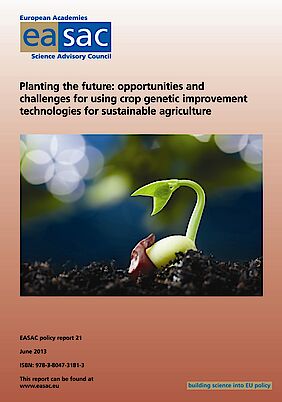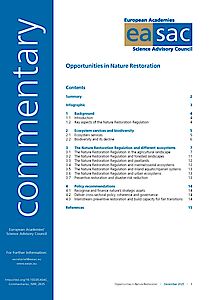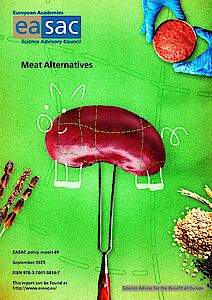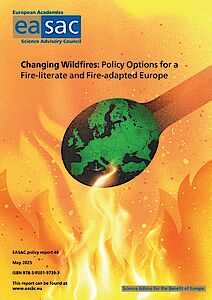Publications
Planting the future: opportunities and challenges for using crop genetic improvement technologies for sustainable agriculture
Agriculture faces major challenges to deliver food security at a time of increasing pressures from climate change, social and economic inequity and instability, and the continuing need to avoid further loss in ecosystembiodiversity. The introduction of new EU legislation requiring farmers to reduce reliance on crop protection chemicals creates additional challenges for maintaining levels of crop productivity.
Previous European Union (EU) agricultural policy had focused on constraining food production but there is a new realisation that the EU should now increase
its biomass production for food, livestock feed and other uses, including renewable materials to support the bioeconomy. The production of more food, more sustainably, requires the development of crops that can make better use of limited resources. Agricultural innovation can capitalise on the rapid pace of advance in functional genomics research and it is unwise to exclude any technology a priori for ideological reasons. Sustainable agricultural production and food security must harness the potential of biotechnology in all its facets.
In previous work, the European Academies Science Advisory Council (EASAC) has described the opportunities and challenges in using plant genetic resources in improved breeding approaches, for example by using marker-assisted selection of desired traits. In the present report, EASAC explores some of the issues associated with the genetic modification of crops, where the EU has fallen behind in its adoption of the technology, compared with many other regions of the world. Concerns have been expressed that a timeconsuming and expensive regulatory framework in the EU, compounded by politicisation of decision-making by Member States and coupled with other policy inconsistencies, has tended to act as an impediment to agricultural innovation. Controversies about the impact of genetically modified (GM) crops have too often been based on contested science or have confounded effects of the technology with the impact of agriculture per se or changes in agronomic practice. It is vital to address the policy disconnects because there is a wide range of opportunities in prospect for improving agricultural productivity and efficiency, environmental quality and human health, by using all available technologies where appropriate.
New Breeding Techniques
As an early project deliverable, EASAC produced (July 2012) a short briefing paper focusing specifically on strategic issues for the regulation of New Breeding Techniques. The issues raised in the briefing paper (download here) are discussed in further detail in the main report.
back to overview
































